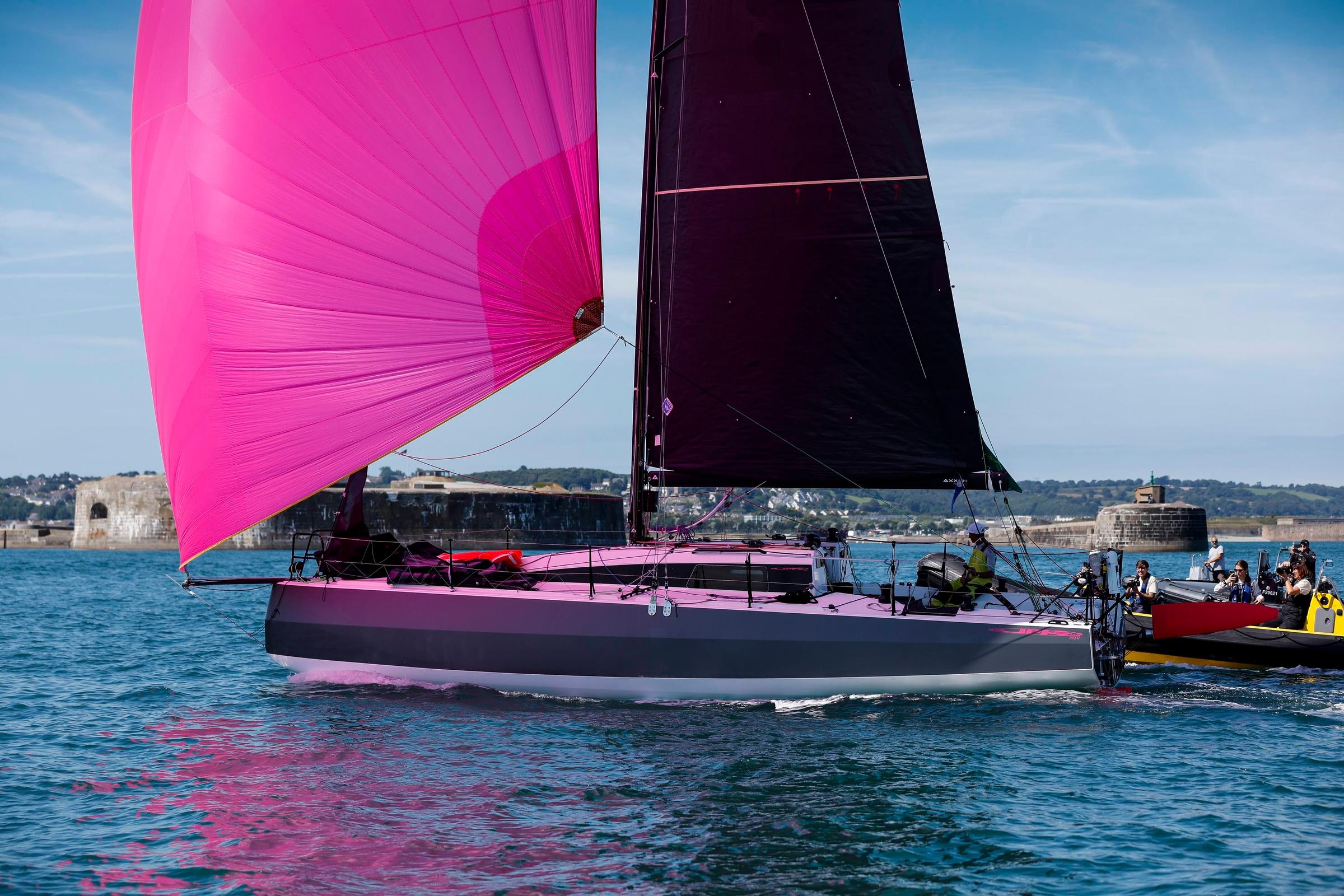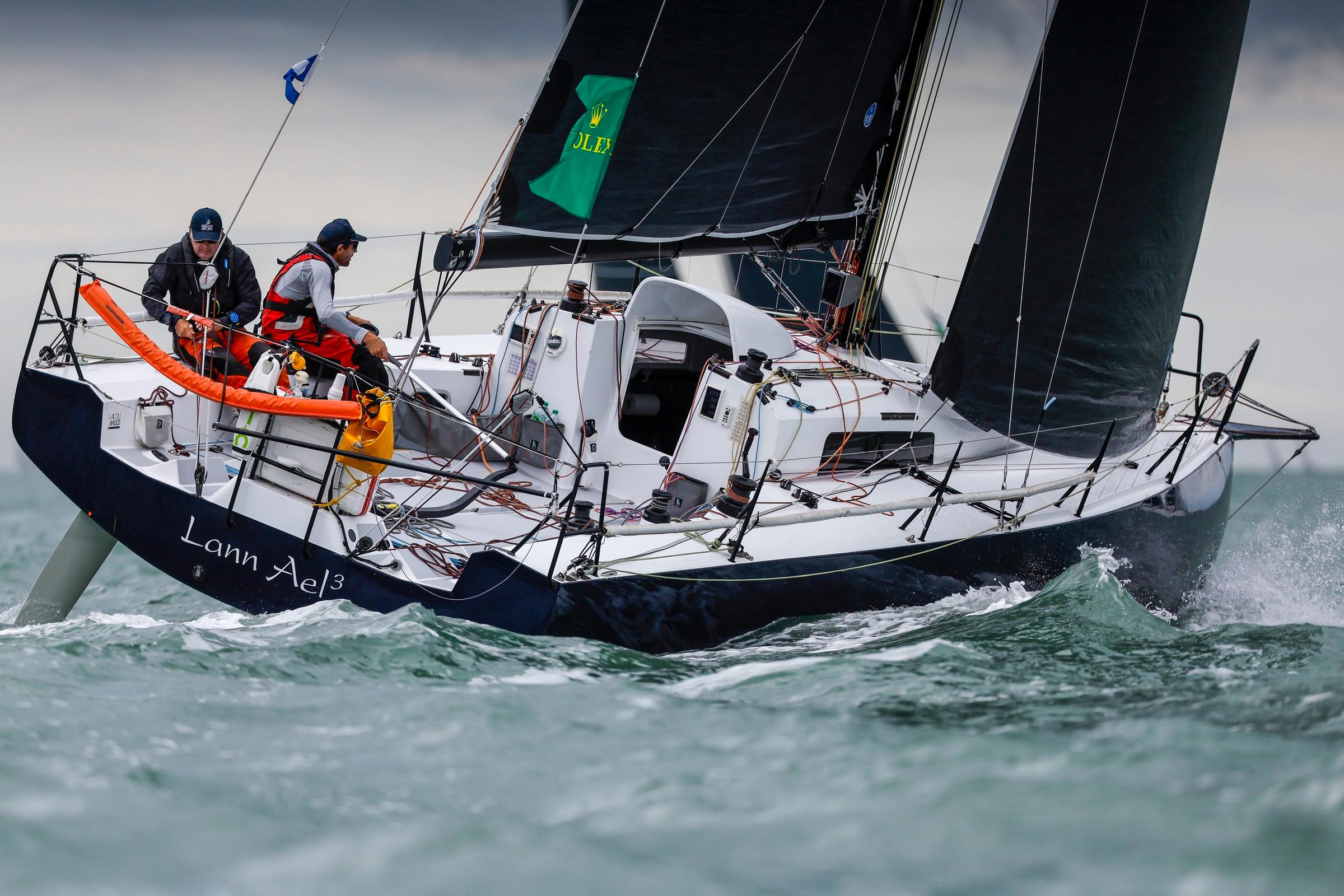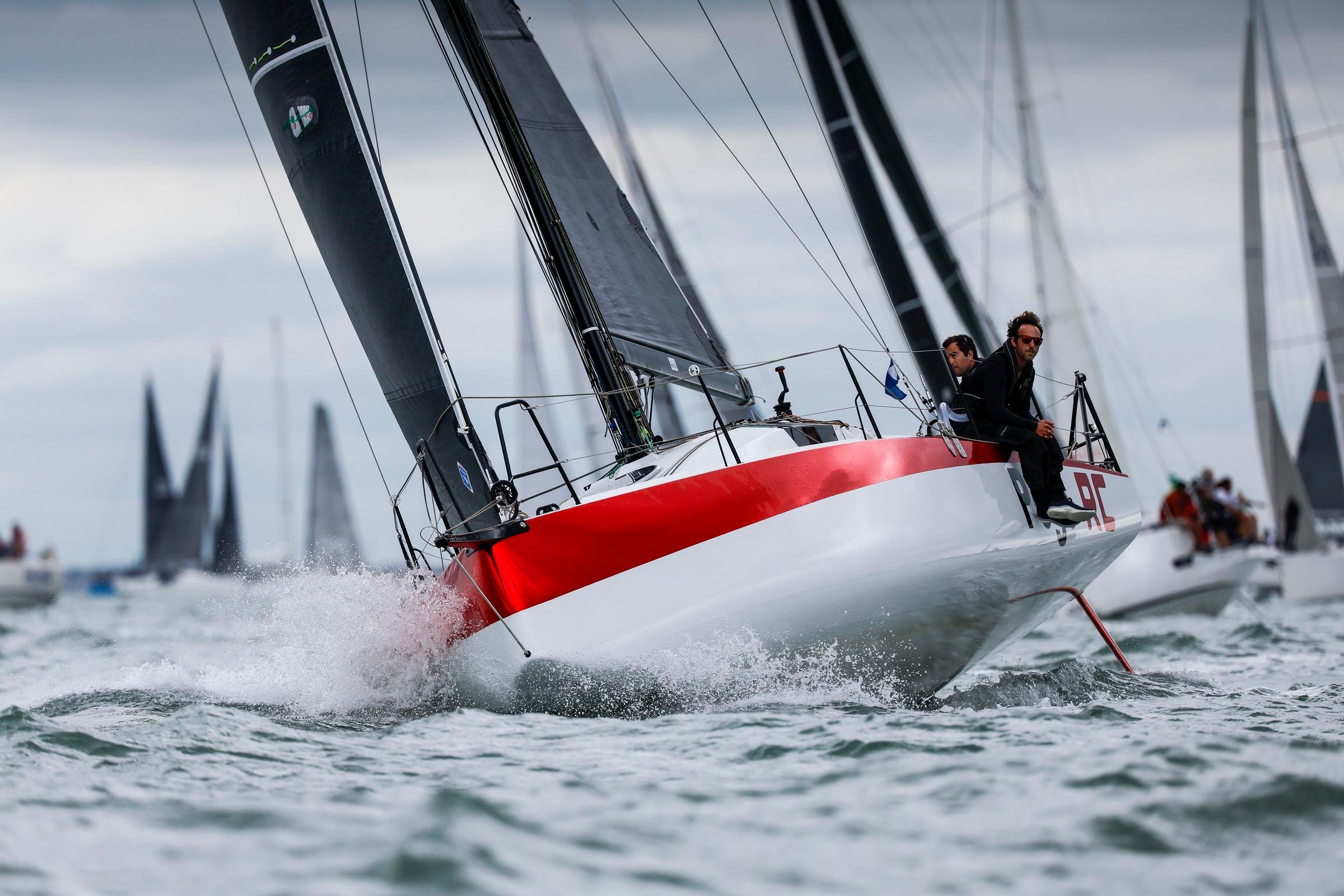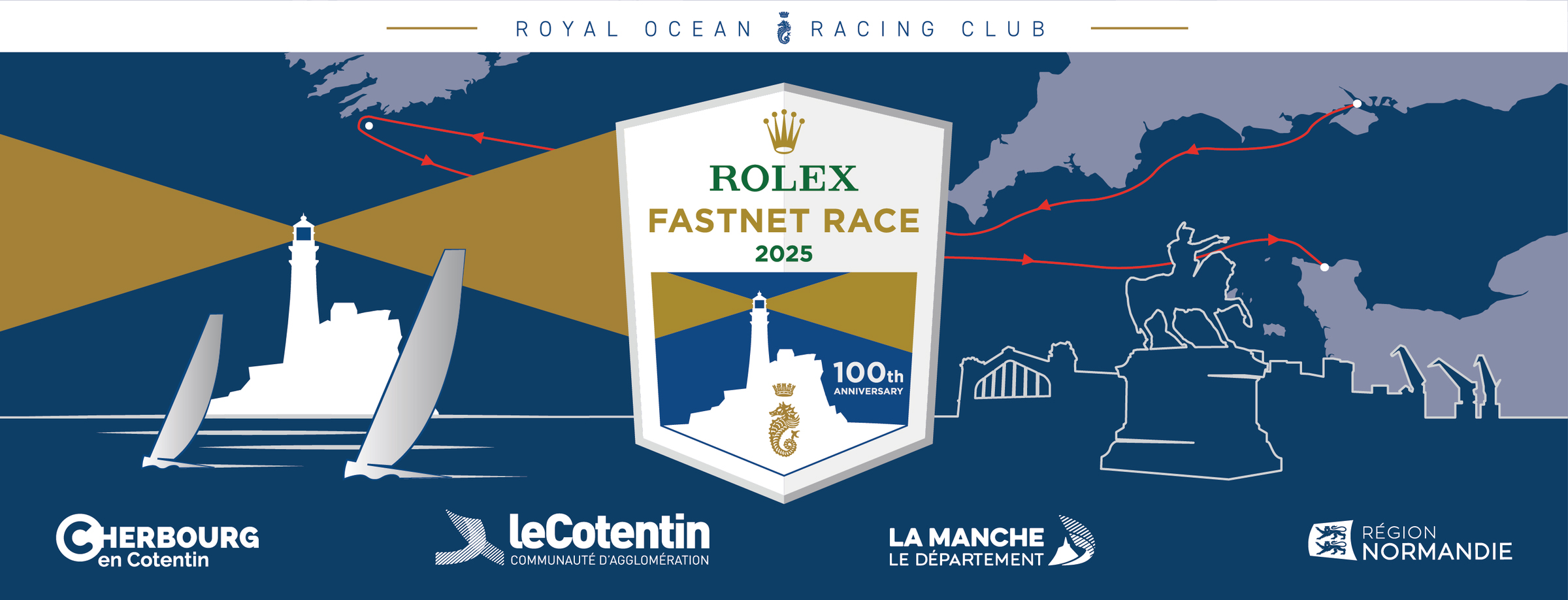

A dozen years after a two-handed team first won the Rolex Fastnet Race, doublehanded boats dominated the top of the IRC Overall leaderboard this year, filling the podium with three different designs of yacht.
Winning margins, even in races as long as this, are typically counted in a handful of minutes. The scale of Jean-Pierre Kelbert and Alexis Loison’s overall win in the centenary edition of the race, with a margin of almost two hours, therefore represents a remarkable achievement, especially as this was only the fourth race for the JPK 1050 Léon.
 The JPK 1050 Léon's wonderful result in only her fourth race has drawn yet more attention to this highly successful brand © Nicolas Touze/Rolex Fastnet Race
The JPK 1050 Léon's wonderful result in only her fourth race has drawn yet more attention to this highly successful brand © Nicolas Touze/Rolex Fastnet Race
“Lann Ael 3 – a one-off design – validated this radical concept with a very powerful shape and very light construction,” says Kelbert. “We already had a design, because Jacques (Valeur) produced two options when he introduced the 1030.
“There’s a lot of sail area and that means a high rating for the size of the boat, but it works really well. And adds so much pleasure. Reaching is just amazing because with the very powerful hull you can sail higher with the big kite with 25 knots. It's like a rocket.”
Nevertheless, to simply credit the boat’s design would undermine the level of preparation and skill exhibited by Kelbert and Loison. They have an enviable track record, with Loison having competed in 17 Solitaire du Figaros, as well as becoming the first doublehanded winner of the Rolex Fastnet Race, sailing with his father Pascal on the JPK 1010 Night and Day. Kelbert is founder of the JPK yard, responsible for six podium finishers in the IRC classes, as well as 20 per cent of the entries in the Admiral’s Cup 2 fleet.
Seasoned IRC Two competitor, Ross Applebey, whose Lightwave 48 has scored a podium result in his division in every Rolex Fastnet Race over the past 20 years, paid tribute to their performance: “They're obviously very clever designs, but we all have to acknowledge they're very well sailed.
“You've got some of the best shorthanded sailors in the world on those boats and they've really gone to town on preparation. So credit where credit's due: they beat us because they ultimately sailed their kit better than we sailed ours.”
 Didier Gaudoux and Erwan Tabarly's Lann Ael 3 finished second in both IRC Overall and IRC Two-Handed © Paul Wyeth/RORC
Didier Gaudoux and Erwan Tabarly's Lann Ael 3 finished second in both IRC Overall and IRC Two-Handed © Paul Wyeth/RORC
Didier Gaudoux, racing Lann Ael 3 with Erwan Tabarly, Eric’s nephew and another leading Figaro sailor, took second place overall on IRC. “As usual, the race was not easy, but was a lot of fun and a bit easier than two years ago,” he says. “The end was quite difficult for us because we had a blackout of electricity” and as a result they had no autopilot or AIS.
“It was really challenging coming back from the Rock. We were expecting 18-20 knots, but had 25-28 and at one time 29 knots. We started with the big spinnaker, and it was a big challenge with a lot of adrenalin because the pilot wasn’t working - there was a lot of water on the deck too. It was a lot of fun!”
Amarris, a Pogo RC sailed by Tanguy Bouroullec and Achille Nebout, took third overall in IRC. This is another new design for this season and a direct development of the thinking behind Lann Ael 3 by the same designers, Sam Manuard and Bernard Nivelt.
 Amarris, sailed by Tanguy Bouroullec and Achille Nebout, took third overall in IRC © Paul Wyeth/RORC
Amarris, sailed by Tanguy Bouroullec and Achille Nebout, took third overall in IRC © Paul Wyeth/RORC
This is another top team – Nebout is a Figaro and Class 40 sailor with a string of podium results in both classes, including a win in last year’s Transat Quebec-Saint Malo, while Bouroullec took third place in the 2021 Mini Transt, racing a foiling Mini 650.
An oft-quoted saying in offshore racing is the key aim is to win your class. But who wins overall depends on which class the conditions for the race favour the most.
Romain Gibon and Alban Mesnil on the JPK 1010 Abracadabra2 took a decisive win in IRC Four, beating all the fully crewed boats and were fifth in the two-handed fleet. How did they achieve a class win, when success depends on spending time on strategy and weather routing, as well as optimising boat speed?
-4-copyLOW.jpg) Abracadabra2, sailed by Romain Gibon and Alban Mesnil, finished 5th in IRC Two-Handed © Arthur Daniel/RORC
Abracadabra2, sailed by Romain Gibon and Alban Mesnil, finished 5th in IRC Two-Handed © Arthur Daniel/RORC
“I spend most of the time working on the computer and strategy while Alban is always pushing the boat to 100% of its potential,” says Romain. “We have the polar percentages on display and if it’s less than 100% we know we have to do something.
“We are also tracking the other boats on AIS and display their polar percentage performance on a tablet in the cockpit. So we know when they are faster than us – it's a way to keep the pressure on us and to keep pushing hard.”
RORC Commodore Deb Fish and Rob Craigie took second place in IRC Three, and seventh overall in IRC Two-Handed, racing the Sun Fast 3600 Bellino. “Mzungu! [Sam White and Sam North / JPK 1080] have been pushing us all the way, just like in the Sevenstar Round Britain and Ireland Race three years ago. We were duelling all the way round the course and it’s great to have such high calibre opposition to race against.”
